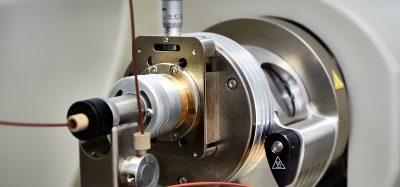Genetic study confirms that numerous genes contribute to Tourette’s syndrome
Posted: 1 March 2019 | Iqra Farooq (Drug Target Review) | No comments yet
A meta-analyses of a number of studies has found that variants in numerous genes work together to contribute to Tourette’s syndrome…


A meta-analyses of numerous studies into Tourette’s syndrome (TS) has found that variants in hundreds of genes work together to contribute to the development of the condition.
Researchers have suggested that the syndrome is part of a continuous spectrum of tic disorders that range from mild, sometimes transient tics to severe cases that may include psychiatric symptoms.
Investigators at Massachusetts General Hospital (MGH), the University of California at Los Angeles (UCLA), and the University of Florida and Purdue University led the research, which describes finding that individuals with more TS-associated variants are more severely affected, increasing the possibility of predicting if children with mild disorders with become progressively worse over time.
“This study confirms that, for most patients, the underlying genetic basis of Tourette’s syndrome is polygenic – that is, many genes working together to cause a disease,” said Dr Jeremiah Scharf, of the Psychiatric & Neurodevelopmental Genetics Unit in the MGH Departments of Neurology and Psychiatry and the MGH Center for Genomic Medicine, co-senior and corresponding author of the report.
“This means that most people who have TS do not carry a single inactive gene but instead inherit hundreds of small DNA changes from both parents that combine to cause TS. This finding has multiple important implications, both scientifically as well as for patient advocacy and understanding of their symptoms.”
A combination of data sets from published studies from three international genetics consortia – the Tourette Association of America International Consortium for Genetics, the Gilles de la Tourette GWAS Replication Initiative, and the Tourette International Collaborative Genetics Study, included a total of 4,819 patients with TS and 9,500 unaffected control volunteers.
“Every one of the variants that contribute to developing TS is present in a significant proportion of the general population, which means that most people with TS do not have ‘broken’ or ‘mutated’ genes,” said Dr Scharf.
“The movements and thoughts that individuals with TS have are the same ones that all of us have, but just to a greater degree. As doctors and researchers, we know that there is nothing that separates those with TS from other children and adults, and now we’ve shown this is actually true on a genetic level.”
The next step is to expand the analysis with a larger sample of around 12,000 patients with TS, made possible with international collaboration.
The study was published in the American Journal of Psychiatry.
Related topics
Analysis, Big Data, Disease Research, Drug Discovery, Drug Targets, Genomics, Research & Development, Screening
Related conditions
Tourette's syndrome (TS)
Related organisations
MGH Center for Genomic Medicine, MGH Departments of Neurology and Psychiatry, Psychiatric & Neurodevelopmental Genetics Unit
Related people
Dr Jeremiah Scharf








